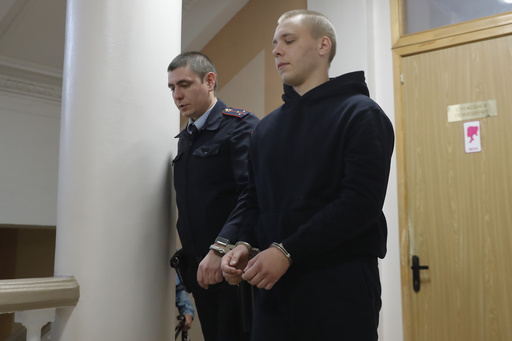
Moscow – A man in Russia is on trial for high treason, accused of sending a video to Ukraine’s security services, amid a notable increase in espionage cases related to the ongoing conflict in Ukraine. The Volgograd District Court commenced proceedings against Nikita Zhuravel, who is already serving a 3.5-year sentence for publicly burning a Quran outside a mosque.
The new accusations against Zhuravel stem from allegations that he recorded a convoy of military vehicles and aircraft in 2023, which he subsequently sent to a member of Ukraine’s security agency. If convicted on these charges, he faces the possibility of a life sentence.
Human rights activists have labeled Zhuravel a political prisoner and have condemned the violent treatment he reportedly experienced while in custody. During his time in pretrial detention prior to his first sentencing, he was reportedly assaulted by the teenage son of Ramzan Kadyrov, the Kremlin-backed leader of Chechnya, a region with a predominantly Muslim population. This incident gained widespread public attention when Kadyrov shared footage on social media, praising his son for the attack. The elder Kadyrov later honored his son with the title of “Hero of the Republic of Chechnya.”
Despite the controversy surrounding this incident, federal authorities have been notably silent regarding any criticism of Kadyrov’s actions.
Since Russian President Vladimir Putin ordered military action into Ukraine in February 2022, the number of treason and espionage cases has surged. These cases have affected a diverse range of individuals, from critics of the Kremlin and independent journalists to established scientists, drawing considerable condemnation from human rights organizations.
The legal interpretation of treason has notably widened, now encompassing broadly defined “assistance” to foreign entities, which potentially places anyone in contact with foreign individuals at risk of legal prosecution.
